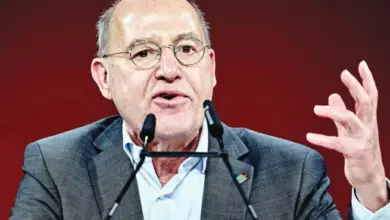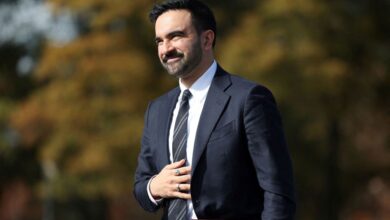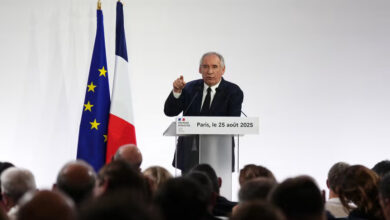I wrote an article last week commenting on the intervention of the church in political affairs and the statements of some of its leaders about choosing Coptic candidates for electoral lists. I said that I was disappointed to see that we did not make use of the gains we have achieved at a high price in last four years.
The most important of these gains, in my opinion, was that the Coptic Christians finally leaving the church’s ghetto where they were held captive by radical currents in the community and by the state that has, since the era of Nasser, regarded them as a religious sect and not as equal citizens, dealing with them only through their pope.
Meddling in political affairs is a double sin: it is not just the sin of the church but also of a state that still believes it must deal with Coptic Christians through a mediator, as if it does not recognize them as individuals.
Mixing religious activity with political activity is neither in the interest of the church nor the Copts themselves. It is not even in the interest of the state because it fields figures that are far from public work to take a political role. These could be exploited by anti-democracy currents as had happened previously.
The opportunity that the constitution has given to marginalized groups like Copts and women should be seized because it allows the community to choose them for parliament for their efficiency and qualification, regardless of their gender or religious belief. They are not in parliament to defend their own interests only.
Does this double sin exist because the state insists on it or because the church insists on it? Or is it both? Is it an attempt to keep the status quo or a desire to control?
The path of politics is paved with good intentions. I am sure both sides believe this is the best way to choose good deputies for parliament. Yet good intentions do not make a democratic society.
The Church requests many wasted rights that cannot be achieved except from a civilian perspective. How then can it intervene in politics from a religious or purely sectarian perspective?
The mechanisms of many practices now are frustrating us and are making us feel that nothing has really changed. The issue is not that figures of the old regime are re-emerging. The more important issue is the mechanism that dominates everything. Is it a new mechanism ? Does it respond to demands that have for years been calling for separating between religion and politics, for considering the Copts as citizens and not as a sect, and for limiting the role of the church to spiritual matters?
I think the answer is clear.
Edited translation from Al-Masry Al-Youm




